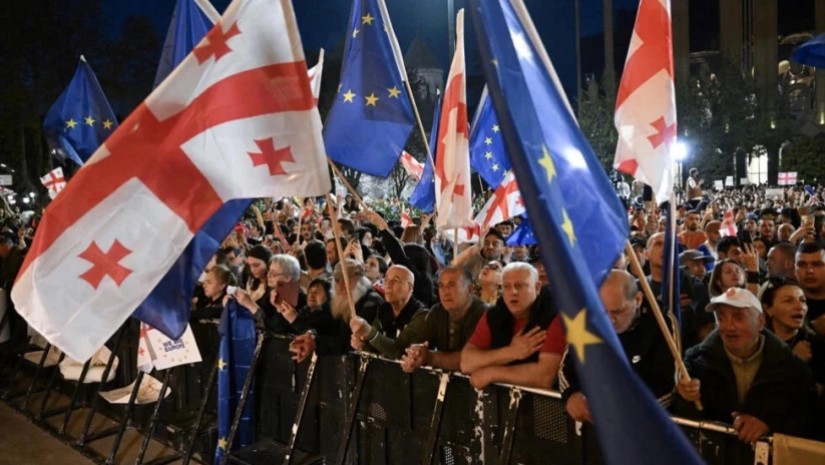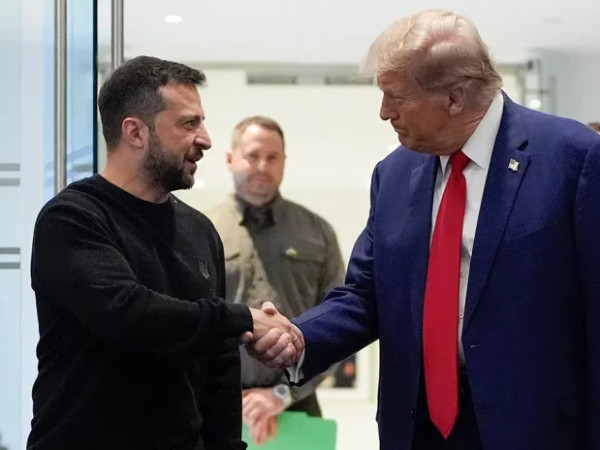Some 20,000 protesters rallied in Georgia on Wednesday after lawmakers advanced a controversial "foreign influence" law that opponents say will undermine Tbilisi's longstanding European aspirations.
In a vote boycotted by opposition deputies, 83 lawmakers from the ruling Georgian Dream party passed the first reading of the bill, which has been criticised as mirroring a repressive Russian law on "foreign agents" used to silence dissent. That was enough for it to pass the 150-seat parliament.
In the evening, thousands of protesters blocked traffic on the main thoroughfare of the Georgian capital Tbilisi, in front of the parliament building, where hundreds of riot police were bussed in.
"No to the Russian law!" shouted demonstrators after the Georgian national anthem and European Union's Ode to Joy were performed at the rally, the third day of mass anti-government protests.
"Today is a sad day for Georgia, because our government has taken another step towards Russia and away from Europe," said protester Makvala Naskidashvili.
"But I am also happy because I see such unity among the youth," the 88-year-old added. "They are proud Europeans and will not let anyone spoil their European dream."
Protesters then issued an ultimatum to the authorities, demanding the withdrawal of the draft law within an hour, before marching to the prime minister's offices to demand a meeting with the head of government, an AFP journalist saw.
Protest rallies were also held in several cities across Georgia, including the second-largest city of Batumi, Interpress news agency reported.
Since Monday, thousands have been taking to the streets in Tbilisi every day to protest against the draft law.
Previous days saw riot police chase demonstrators in the labyrinth of narrow streets near parliament, beating them and making arrests.
Several local media outlets said police had attacked their journalists.
If adopted, the bill would require any independent NGO and media organisation receiving more than 20 percent of funding from abroad to register as an "organisation pursuing the interests of a foreign power".
Amnesty International urged Georgia's authorities to "immediately stop their incessant efforts to impose repressive legislation on the country's vibrant civil society."


















